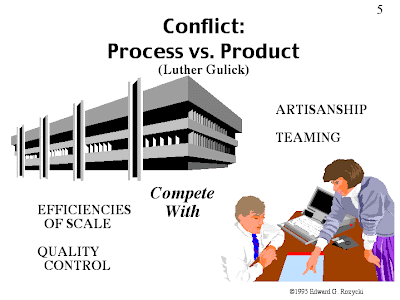When the Daily Howler's Bob Somerby speaks on education, we listen, as he exposes so much of the way the press mis-covers the story. Somerby really taught elementary school for over a decade in the Baltimore school system - he has done yeoman work in exposing the Michelle Rhee "miracle" when she also did her 2 year stint of teaching.
I've been wanting to write about the differences in the kids and families I saw over my 30 years teaching elementary school in one of the poorest areas of the city as a way to explain the way charter schools draw off the most ambitious families. Not that I blame them. But let's not keep saying when we compare kids in charters and public schools in the same neighborhood we are not talking apples and oranges.
I will write again on this issue, providing specific examples at how kids in the same school, neighborhood, buildings and even sometimes, family, can be so different academically – something teachers who rotated from top to bottom classes every year when the kids were grouped homogeneously saw on a regular basis.
In his last two posts, Somerby nails this so much better than I could.
The authors [of a report pointing to how Washington DC charters performed so much better than public schools] say that charters and traditional schools “are, in general, educating students from similar backgrounds.” To establish this fact, they cite data about income and race—and about nothing else. But low-income students are not all alike, and the authors make little real attempt to address the long-standing, basic question about charters: Are the students who choose to attend these rigorous charter schools more ambitious, more determined, more focused than the students they leave behind?
Not all “low income” families are equally low-income. Are the low-income kids in the charter schools as low-income as the kids in the regular schools? We can think of a few simple ways to start to check, but the authors didn’t try to do so.
The Howler has two lengthy posts on this issue (Dec.23 - http://www.dailyhowler.com/) but it is so insightful, we just have to use most of this here for people who don't click on the links.
From here on it is all
Howler:
[The Washington Post editors] tried to explain why DC charters were outpacing DC’s traditional schools. Assuming that students in the charters really are doing better, that’s a question which actually matters. And here’s the way the eds explained it, right at the start of their piece:
WASHINGTON POST EDITORIAL: Students in the District's charter schools on average outperform peers who attend the city's traditional public schools. They do so not because they come from more privileged backgrounds but because the charters are free to innovate and implement practices that work. The charter schools' success in educating poor and minority children should be celebrated, and it should help validate efforts by Mayor Adrian M. Fenty (D) and Schools Chancellor Michelle A. Rhee to bring similar changes to the traditional public schools. The charters' independence, so vital to their success, should be protected.
Again, the editors misstated their factual claim from the jump; the news report on which this editorial was based concerned low-income students (in middle schools), not DC students generally. But quickly, the editors stated their larger view: In DC, charter school kids are scoring higher “not because they come from more privileged backgrounds but because the charters are free to innovate and implement practices that work.” That’s a very important judgment—and we don’t know why the editors feel so certain about it.
Let’s return to the lengthy news report on which this editorial was based. In DC’s middle schools, charter kids are outscoring their peers in traditional schools, Dan Keating and Theola Labbe-DeBose said. (We’re assuming their data are accurate.) And sure enough! Right in the front-page headline in our hard-copy Post, a judgment was made about the cause of the score gaps:
WASHINGTON POST HEADLINE (12/15/08):
Gains Made In Educating City’s Poor Children
Rigorous Methods, Ample Funds Linked to Improved Test Scores
We think that’s a fair account of what the authors said in their report. They suggested two reasons for the charter schools’ higher scores; the charters have a funding advantage, they said, and the charters apply rigorous methods not often seen in the regular schools. Five days later, the editors voiced their own views—and skipped right past that funding advantage. The eds made the news report’s tale even simpler: Charter school kids are outscoring their peers “because the charters are free to innovate and implement practices that work.” Soon, the editors identified a few of these practices: “[L]onger school days, summer classes, an inclusive culture of parental involvement, and the power to hire teachers who are committed to a school's philosophy and dismiss teachers who aren't up to the job.”
According to the editors, charters students are doing better because of those practices—and that’s the end of the story. No other explanations need apply. Charter kids are not doing better “because they come from more privileged backgrounds,” the editors specifically said.
But is that true? We’re not real sure why the editors feel so certain.
In their original news report, Keating and Labbe-DeBose also seemed to reject a traditional notion—the notion that charter schools may draw brighter, more ambitious students away from the regular schools. Unfortunately, their analysis of this possibility was rather superficial. In the following passage, we see the heart of their case. Because the question is so important, we don’t think this reasoning cuts it:
KEATING AND LABBE-DEBOSE (12/15/08): The two public systems are, in general, educating students from similar backgrounds. About two-thirds of the students in both systems live in poverty, and more than 90 percent are minorities, according to school records. The traditional schools enroll a slightly higher percentage of special education students and students with limited English.
Charter schools must accept any student who applies, using a lottery if they have more applicants than spaces. That prevents the schools from cherry-picking applicants. But each school is free to set its own rules on expelling students.
Susan Schaeffler, who heads the KIPP (Knowledge Is Power Program) charter schools in the District, said expulsions have not been a major factor. Almost all of the students at KIPP's three D.C. middle schools come from poor backgrounds, but the schools are among the highest-performing in the city. Within a decade, KIPP, a national charter network, plans to have 10 schools in the District, with a total of 3,400 students.
“Our success is not from moving kids out," she said, but is attributable to a highly unified school culture that teachers and students embrace.”
The authors say that charters and traditional schools “are, in general, educating students from similar backgrounds.” To establish this fact, they cite data about income and race—and about nothing else. But low-income students are not all alike, and the authors make little real attempt to address the long-standing, basic question about charters: Are the students who choose to attend these rigorous charter schools more ambitious, more determined, more focused than the students they leave behind? It would be hard to answer that question, of course, but the authors brushed past it quickly—and five days later, the editors treated it as a settled point. But this is typical of the way these eds work when discussing the public schools.
By the way: Not all “low income” families are equally low-income. Are the low-income kids in the charter schools as low-income as the kids in the regular schools? We can think of a few simple ways to start to check, but the authors didn’t try to do so. Nor did they try to quantify the expulsions they mention above, seeking a sense of the role these expulsions might play in the charters’ success. In their report, a KIPP official tells them that “expulsions have not been a major factor”—and that’s where the matter ends. This is not an impressive attempt to examine these parts of their story.
Assuming the Post’s test score data are accurate, why are low-income kids scoring better in DC’s charters? That’s a very important question. We think the eds should maintain open minds about possible answers—although such miracles rarely occur when the Post proclaims on the schools.
In closing, three more basic points:
First, if you read through the Keating/Labbe-DeBose piece, you will read about a lot of people in charter schools who are working very hard to succeed. How different are some DC charters? Here’s a quick overview:
KEATING/LABBE-DEBOSE: Freed from centralized rules, charter directors have been able to rethink age-old structures, including the Monday-through-Friday, 8-to-3 schedule.
At many charters, students stay until 5 p.m., with the extra hours devoted to more class time and extra tutoring. Many require students to attend Saturday classes and summer school. Schaeffler said KIPP students spend 47 percent more time in class than students do in traditional schools.
It is not uncommon for charters to buy cellphones for the teachers and then tell students and parents to call anytime they need help.
At Friendship's Blow Pierce middle school in Northeast, parents are asked to sign a statement promising that they will get their children to school on time each day, make sure they wear the uniform, complete homework on time, and attend classes on Saturdays and in the summer if their grades fall below a C average. The parents also agree to attend conferences and school events.
School culture has vastly changed in these schools. In our book, the people who run these schools deserve praise and credit for their ongoing efforts. But: Are the low-income parents who sign those statements, thus sending their kids to these vastly changed schools, “the same” as the low-income parents who don’t? Are their kids the same as the kids left behind? The editors tell us the kids are the same—that the kids in the charter schools do not “come from more privileged backgrounds.” But low-income children are privileged—as opposed to some of their peers—if they have disciplined, focused, insistent parents. As always, the editors issue proclamations from high in Versailles. Do they know whereof they speak?
A second point: Is there any possibility that testing is conducted differently in these ambitious charters? We have no idea, though it’s obviously possible. But you’ll see big newspapers ask that question when you see a cow jump past the moon.
And then too, a final point, concerning DC’s low-income students as compared to their low-income peers in the rest of the nation:
To review DC’s cores in the 2007 National Assessment of Educational Progress, just click here, then click through the pages of this “Trial Urban District” report. In Figure 2 (page 11), you’ll see that DC’s low-income fourth-graders scored lower in reading than their low-income peers from the nine other cities in this study. (The differences can be fairly sharp. In DC, low-income kids scored in the 18th percentile as compared to all other kids in the nation. In New York City, low-income kids scored in the 35th percentile.) DC’s low-income eighth-graders also scored lowest in reading (Figure 7, page 21). DC’s black kids are at the bottom in fourth grade reading—and are next to the bottom in eighth grade reading. We assume these data includes kids from traditional schools and charters, though the charts don’t specifically say.
In DC, those facts are also part of this story. There is much more to say about this story than was found in the Post news report—though Keating and Labbe-DeBose included a lot of useful information. (Assuming their test score data are accurate.) But five days later, the editors blew fairly hard, offering the types of sage conclusion their high class now tends to prefer. They huffed and puffed, till we averted our gaze. Thus do our editors tend to perform in matters of low-income schools.

















